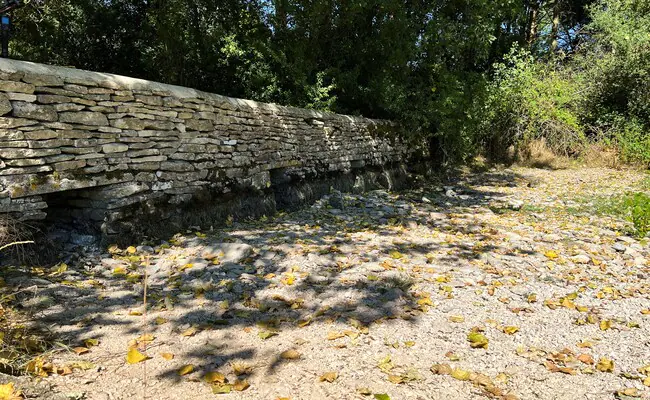
The source of the Thames river has dried further downstream than before, because Britain seems to be entering a drought which according to some experts is not ready.
The British Met Office said this July was the most dry for Britain since 1935 with average rainfall, at 23.1 millimeters (0.9 inches), only 35% of the average for the month. Some parts of the country sees the dried July ever.
The Thames River stretches 215 miles (356 kilometers) across the southern Britain, from Gloucestershire in the west through the heart of London, before entering the sea in Essex in the east.
Spring naturally supplying the river, known as a source, dries mostly summer. But this year, the dry riverbed reaches downstream significantly further than previous years, according to observations by conservation experts.
“The Thames will usually be at its source – and there is a good pub next to it – about 15 kilometers back upstream,” Alisdair Naull, a engagement officer at The Rivers Trust, told Reuters while standing in a small part of Thames Thames in Cricklade, About 80 km west of London.
“This is very, very shallow here … but you don’t have to go further to the top of a little Thames to find yourself standing on dry ground. And really, it is a soil that is still wet and must always be wet.”
Naull says shallow and warmer water contains less oxygen, which is needed by fish and other wildlife.
Thames Head Inn is located upstream, a few steps from a stone that marks the river source in Gloucestershire. His manager, 31 -year -old David McMeeking, said he was worried about the effects of climate change in the same pub.
“This is still the official source of the Thames River so that the stone will always be there, but whether the water comes or not is another problem,” McMeeking said, pouring a door behind the bar.
Extreme Heat
The heat that has never happened before and the lack of rainfall has pushed two water companies in the southern country to announce a temporary ban on the use of Hoseps and Sprinkler systems. Thames Water, who supplied 15 million customers throughout London and Southeast, said that his party planned to introduce the same sidewalk.
The four -day “extreme heat” warnings began to take effect in several parts of England and Wales on Thursday. The Met office issued the first warning like that last month, when the temperature violated 40C (104F) for the first time.
Climate experts and hydrologists at the University of Reading Hannah Cloke said low rainfall had left the river and aquifer surfaces, while water had been removed from the water channel to irrigate plants, add drinking water and for use in the industry.
“If we do not rain in August, in reality, if we have a dry winter, then we can be in severe problems coming spring and next summer when we really do not have the remaining water shop,” said Cloke .
He said the restriction of Hoseps in individuals was useful to help change attitudes towards water use, but investment in infrastructure and policies to prevent further climate change was even more important.






